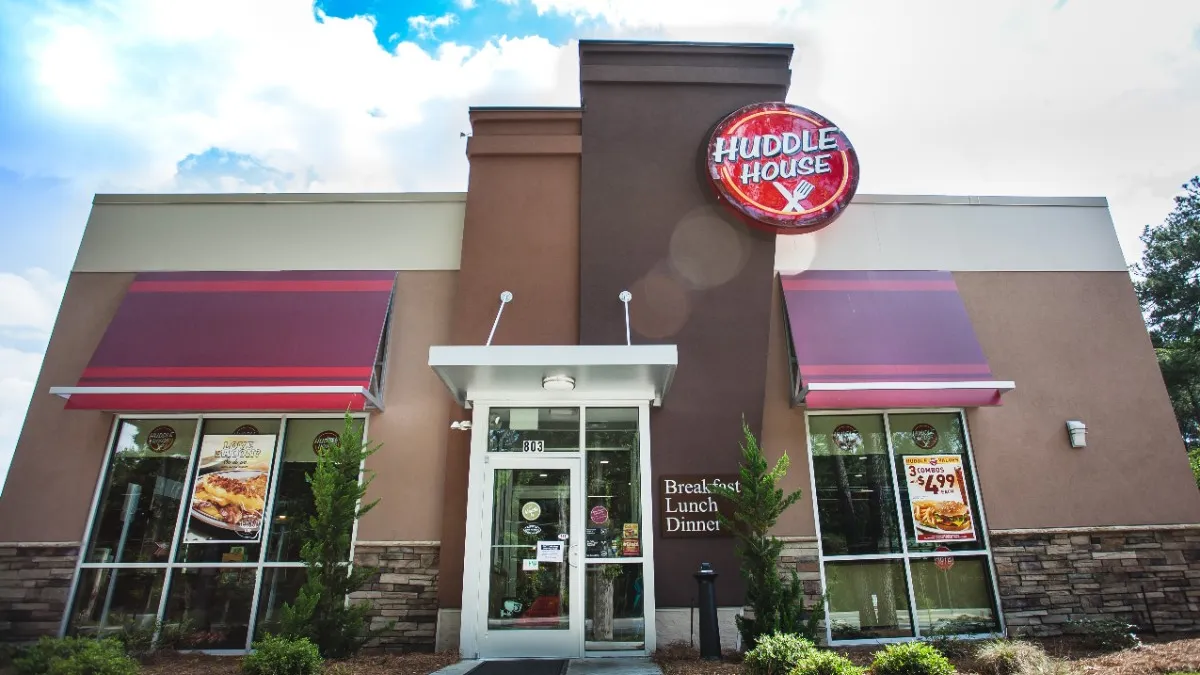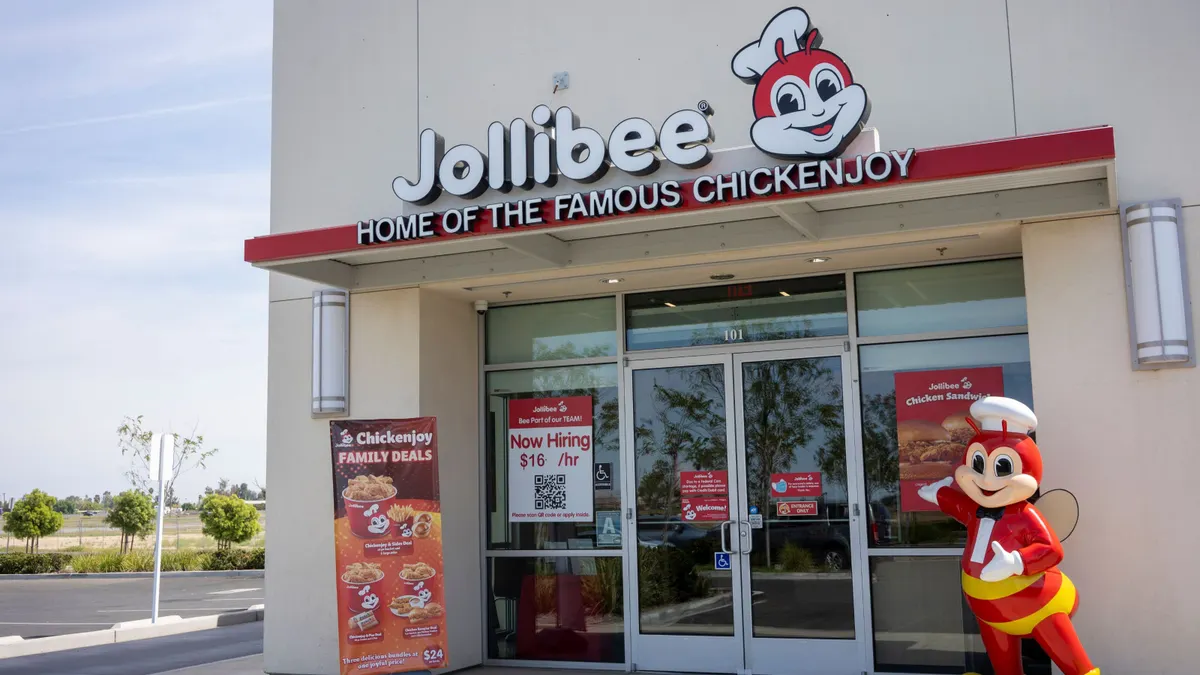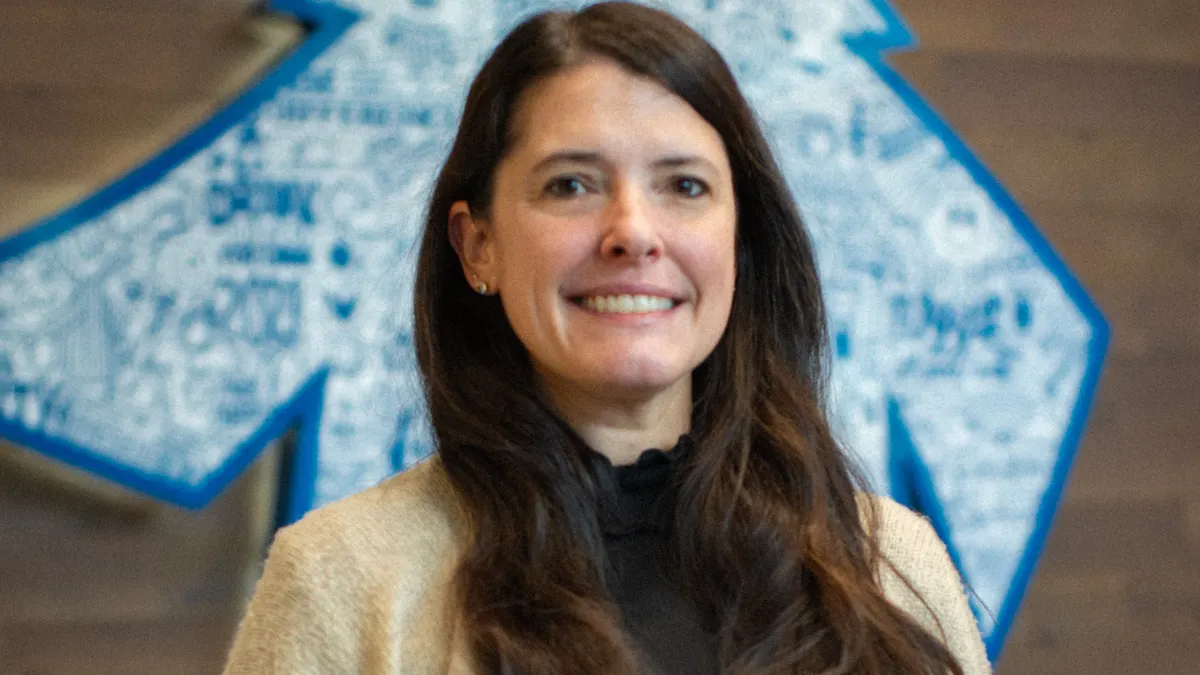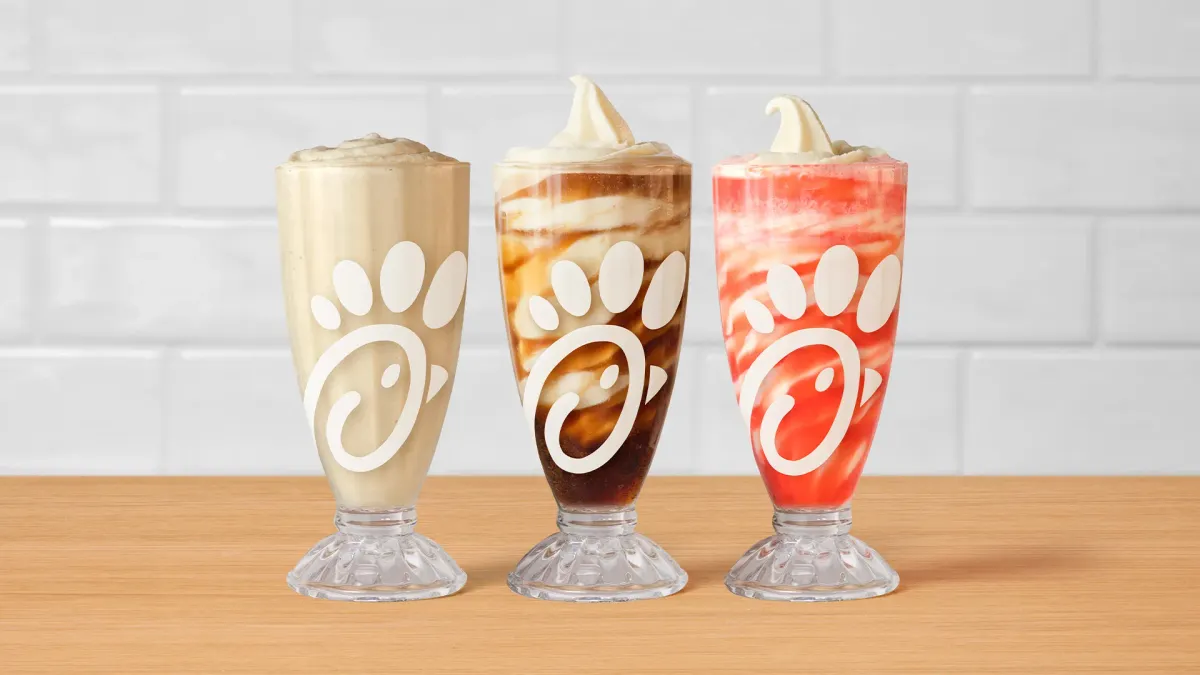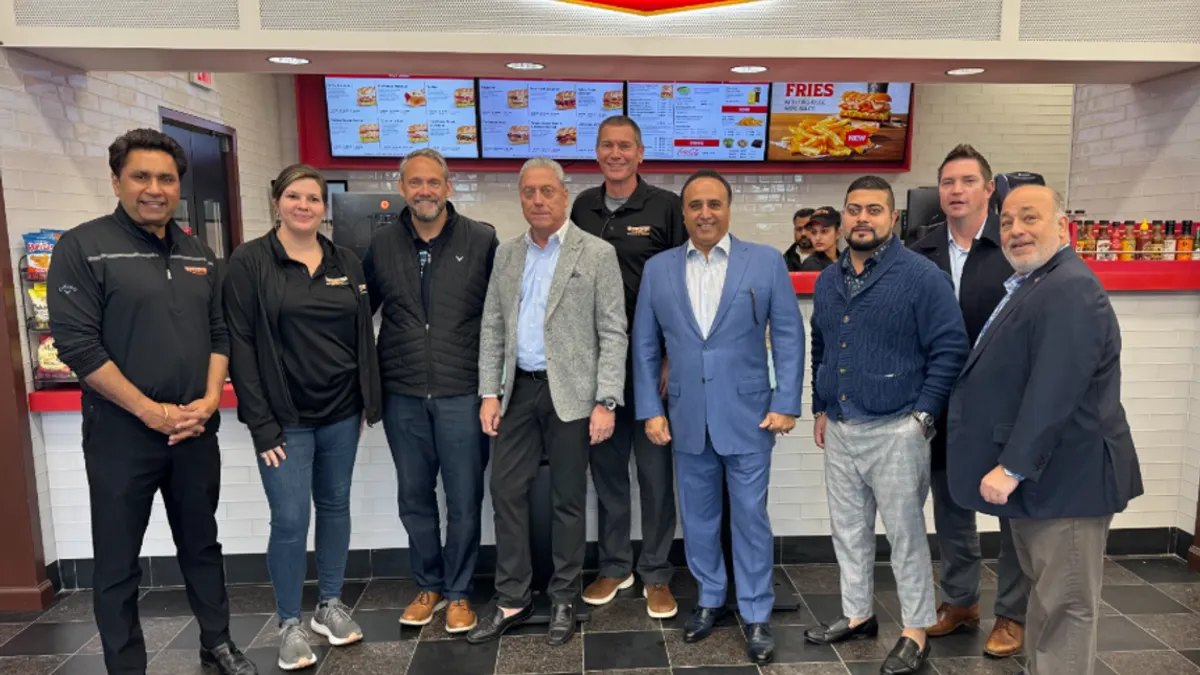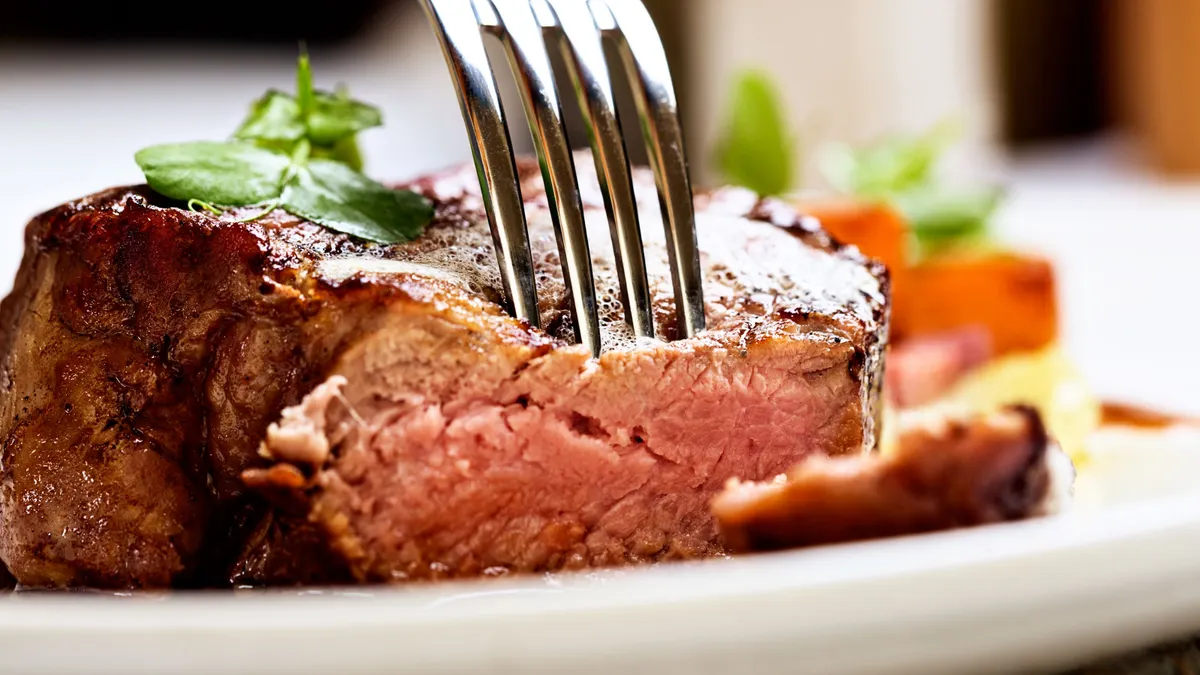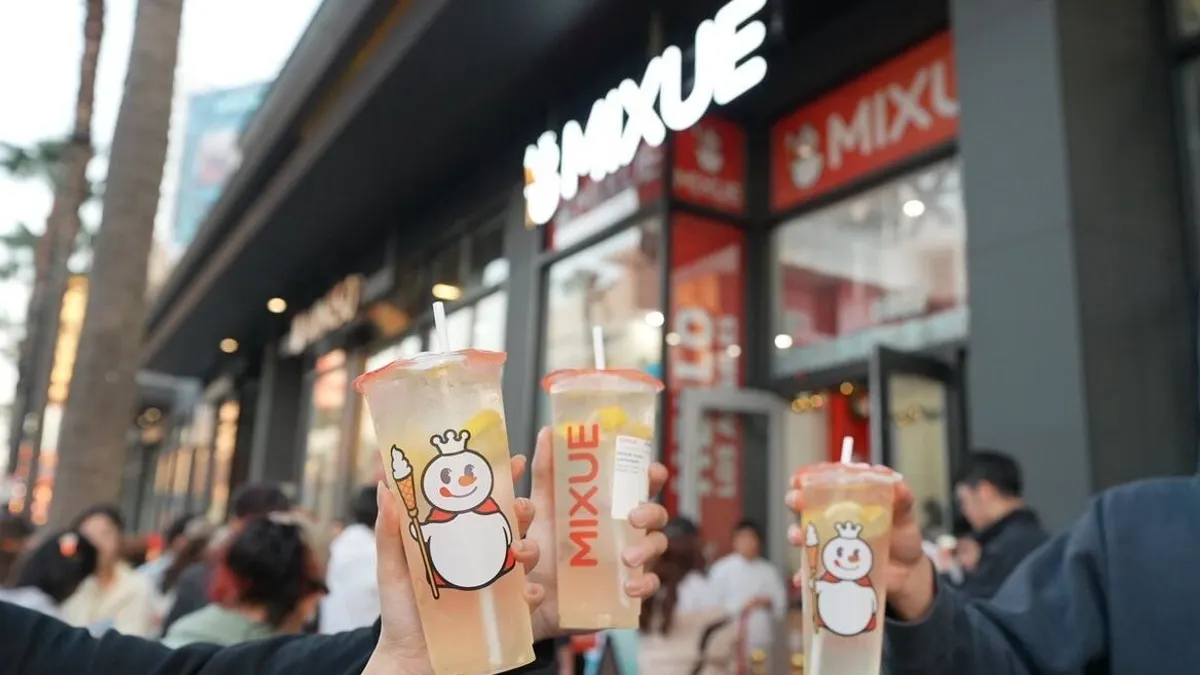When the novel coronavirus pandemic hit, full-service chain Huddle House held weekly conference calls with its Franchisee Advisory Council and weekly one-on-one check-ins for every franchise partner.
"Above all, our focus has been less on trends and more on concrete ways to help our franchisees remain open," Tim Linderman, chief development officer at Huddle House, told Restaurant Dive in an email.
Fostering this level of communication helped the chain quickly pivot to carryout and delivery to allow restaurants to retain staff, roll out family to-go meals and add a pop-up marketplace to sell groceries and essential items. Some operators installed exterior pickup windows for customers to access all of these new additions, Linderman said.
"We are focused on educating our franchise owners and providing as many tools and resources as we can for them to safely reopen dining rooms, while also taking the lessons of the last few months into account and making sure takeout and off-premise dining remain accessible to customers," Linderman said.
Restaurants across the country have maintained ongoing communication to better understand franchisees' evolving needs and to provide information about ever-changing guidelines and new strategies. This level of communication will help many small franchise operators make clear what they need from franchisors to stay in business, such as financial support in the form of fee abatements. For large franchisees, ongoing dialogue will help them navigate different guidelines, especially if they have operations in multiple states.
"[COVID-19] basically knocked everybody, restaurant companies, franchise companies, your best franchisees, your worst franchisees," Dan Rowe, Fransmart founder and CEO, told Restaurant Dive. Fransmart is a franchise development firm that helps emerging brands expand into national and global grands. "It's forced franchisors and franchisees to focus on open, collaborative, solution-focused communications and they were drawn closer than ever before."
The impact of franchisee innovation, daily communications
Part of this collaboration meant sharing and being open to new ideas and ways to market businesses without adding costs, even if they didn’t fit with brand standards.
"We were able to get tremendous ideas from our franchisee community," Charles Guzzetta, BurgerFi president, told Restaurant Dive. "Sometimes a franchisor gets tunnel vision. They're stuck in the corporate headquarters and they don’t always know what’s going on within the four walls of a restaurant. … From our franchisees' perspective, being in the restaurant ... physically being there during the pandemic outbreak and giving us real-time data, suggestions, ideas and what they were doing or seeing success in [created] best practices that then benefited the entire BurgerFi system as a whole."
One of the innovations came from a franchisee out of Alpharetta, Georgia, which is just outside of Atlanta. Even after dining rooms were closed, customers had to trek through the restaurant to reach the counters to place or pick up their orders, Guzzetta said.
But franchise owner Ron Altman and his team created a little outdoor setup with BurgerFi branded tents. They brought tables and patio furniture out to the parking lot to create an order and pickup station where people could safely wait outside or in their vehicles until their order was ready.
"In addition to the support BurgerFi provided during COVID-19, we worked with our city to ensure we provided our guests with a safe, enjoyable experience, allowing us to expand outdoor seating areas into the parking lot," Altman told Restaurant Dive in an email. "By adding covered canopies over picnic tables, our already popular outdoor dining became an even bigger hit."
Corporate later shared the concept with the rest of the system, and many other franchisees repurposed their indoor seating to outdoor seating based on Altman's input, Guzzetta said.
"While parking lot access was not available to every restaurant, we dramatically increased our outdoor seating areas," Guzzetta said. "We also made adjustments to make these areas more inviting and did so while practicing safe distancing along the way."
Franchisors and franchisees also had to rethink marketing, which has long been a contentious issue between the two parties, Rowe said. Franchisees have tended to under market their stores, weren't very good at it on their own and would have to pay into the marketing fund to have corporate advertise for them, Rowe said.
Before COVID-19, one of the biggest challenges franchisees had with marketing is they would need permission from franchisors to make any changes or go off brand, but franchisors have become more lenient, Rowe said. Five Guys, for example, used to be strict about what franchisees put on their windows, but have told operators to do what they need to do to make operations work, such as putting signage out to advertise carryout or curbside, he said.
These kinds of marketing efforts worked. Five Guys' April sales rose 115% compared to April last year, Rowe said.
Others have become more innovative in marketing new off-premise channels. A couple of Halal Guys franchisees noticed that customers didn’t quite understand what curbside pickup was so they called it drive-thru instead, which was off brand for the concept. Once the franchisor saw the concept in action, it approved it on the spot, Rowe said.
In Houston, the local media picked up on the drive-thru concept and gave the franchisee a bunch of free press, driving spring sales 150% higher than normal, Rowe said.
"This pandemic forced everybody to basically find God related to marketing."

Dan Rowe
Fransmart founder and CEO
"Not only does it give you a financial boost, … but mentally … you’re dealing with [COVID-19] and how the rest of the world is melting down, but you're not," Rowe said.
For franchisors that have more contentious relationships, sales have not been as good. Subway, for example, brought back its $5 Footlong deal that it had done in 2008, but faced significant pushback from franchisees, especially because the promotion doesn’t drive as much profitability as it did previously, Rowe said.
"Other franchisors are out there marketing things like convenience, like Halal Guys out there marketing the drive-thru," Rowe said. "There's nothing discounted and that’s something they marketed — [this] sort of David versus Goliath saying, 'We're a strip center guy, but we’re willing to get flexible and make it easy.'"
For Denny’s, fast-acting franchisees were particularly important when it came to rolling out Denny’s Market, which allowed restaurants to sell an array of grocery items.
"Communication and collaboration have been critical elements in our program," Denny's CEO John Miller said during a May earnings call with investors. "We developed and shared training materials with all franchisees and restaurant managers in preparation for the impact of the pandemic."
How continuous communication made all the difference
Denny's was also among the chains to have multiple calls and daily system emails on best practices and key information. These regular, often daily communications, became regular practices across many chains as they worked to make sure operators were all on the same page.
BurgerFi had daily calls with its entire system, including franchisees, general managers, field managers, regional managers and others connected to the brand, Guzzetta said. These calls sometimes contained new information about states closing their dining rooms, while also providing a place for franchisees to talk over their difficulties and provide support to one another. The company also followed up with emails to provide information to people who weren't able to attend.
Franchisees also shared their successes and results from various offers through the BurgerFi app and delivery partners, which resulted in one of the highest participation levels in the company’s history, Guzzetta said. Over 90% of restaurants opted for delivery and online ordering offers such as free delivery, family bundles and buy-one-get-one cheeseburgers, he said.
"Communication was huge. It was definitely a lesson for us and something that we have and will continue to push on and push ourselves more into having regular communication with our franchisees," Guzzetta said.
Working closely with its franchisees paid off. The company was able to reduce its same-store sales deficit from March and April by half in May and June with 10 to 12 units reaching positive comp sales, according to Guzzetta.
Cousins Subs sent daily emails with its franchisee community, making them aware of changes ranging from operational adjustments, new legislation they should be aware of, what relief is available or how corporate is handling staffing issues, Christine Specht, CEO of Cousins Subs, told Restaurant Dive.
"We're trying to cut through that clutter by giving them the information that's really going to be beneficial and useful to them, so that they can still focus on running their business," she said.
While Wing Zone offers open webinars every three weeks to allow for an open Q&A with franchisees, it has maintained daily contact with franchisees.
"It's all hands on deck 24/7, 365 right now in communicating with our franchisees as far as some of their needs [and] their concerns," Matt Friedman, co-founder and CEO at Wing Zone, told Restaurant Dive.
Among the top issues has been a need for more delivery drivers, and the chain has aggressively hired and recruited people following increased consumer demand for delivery during COVID-19. During the height of the pandemic, delivery represented about 70% of its overall sales volume with takeout making up the rest of it, Friedman said.
"Communication was huge. It was definitely a lesson for us and something that we have and will continue to push on and push ourselves more into having regular communication with our franchisees."

Charles Guzzetta
BurgerFi President
Franchisees have also been concerned about the supply chain and making sure they're able to receive the products and food they need. In addition, franchisees are figuring out what safety protocols need to be implemented, such as wearing gloves or increased sanitation, while also communicating and following Wing Zone standards, Friedman said.
In addition to standard brand calls and a brand update that goes out at the beginning of the month that points to various resources and shared folders, Garbanzo Mediterranean Fresh created a COVID Response Team, Devin Handler, VP of marketing at Garbanzo, told Restaurant Dive. That team has provided a COVID Response folder, with guidance for marketing, operations and legal questions.
"Everything is changing daily, hourly and by the minute sometimes, and everyone is operating at a different set of rules based on whatever their state, city and county ordinances and governmental orders are," Handler said.
The company has been holding weekly phone calls to address the evolving situation, he said.
"We just do what we can to provide information, resources and frankly a connection point so that people can just commiserate over what’s happening," Handler said. "I think that is an equally important service to know that other people are in the same boat, to hear about wins and hear about strategic pivots from other people."
While strategies in Seattle might not work in Baton Rouge, just having different solutions available can be helpful, Handler said.
As franchisees adjust operations as customers return and COVID-19 cases rise, franchisors that stay in close contact will be able to continue to pivot as needed. This kind of collaboration will continue to be important even beyond the pandemic.
"You cannot have a successful franchisor without successful franchisees," Rowe said.



